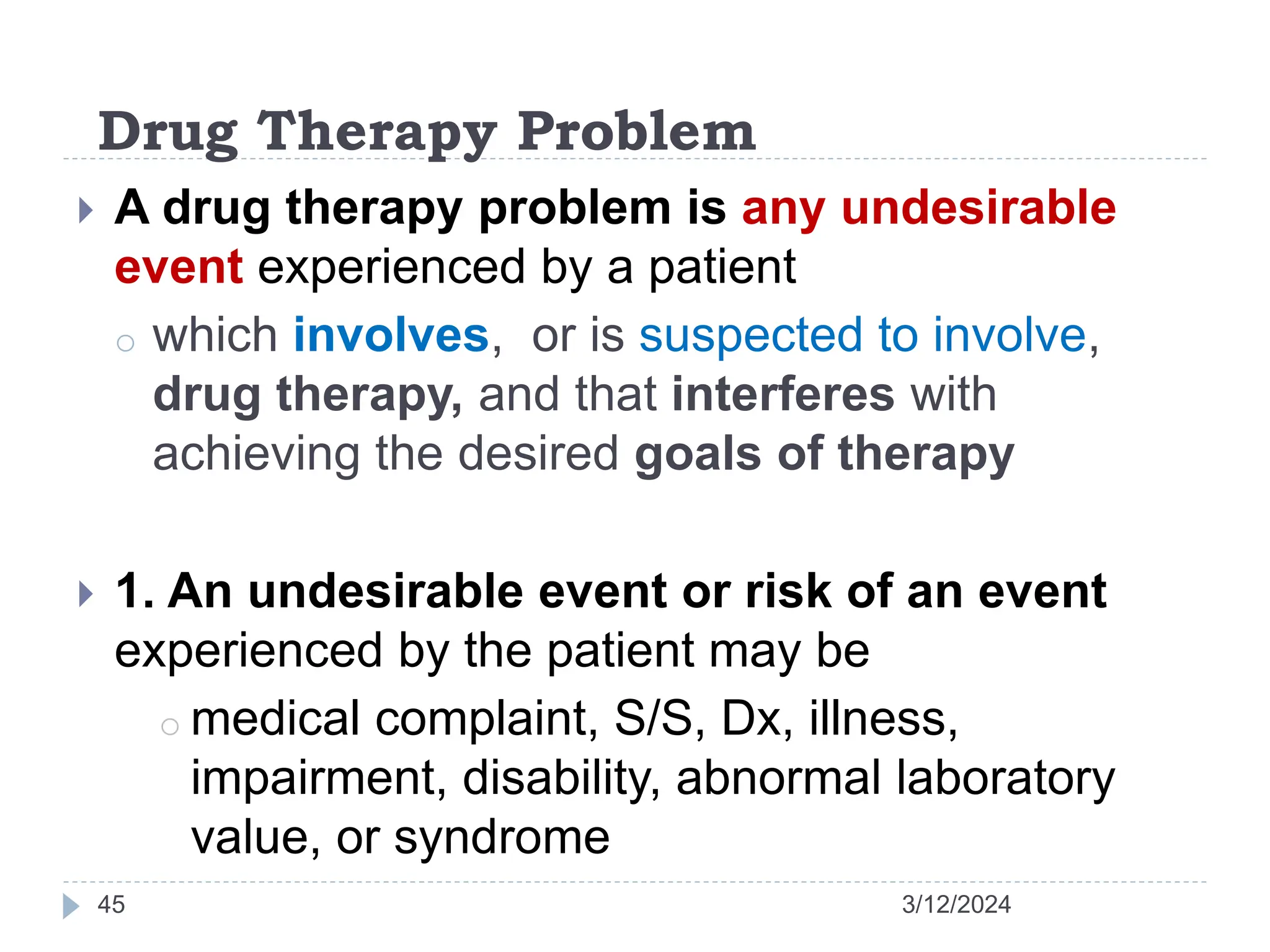Clinical pharmacy practice focuses on achieving quality use of medicines through a patient-centered approach. It involves pharmacists participating in patient management as part of a multidisciplinary healthcare team. Pharmacists apply evidence-based knowledge to identify and reduce risks associated with medication use, educate patients, and conduct research. The goal of pharmaceutical care is to ensure patients receive drug therapy that is appropriately indicated, effective, safe, and convenient through monitoring and resolving any drug therapy problems. This is achieved using the pharmaceutical care cycle which includes assessing patient needs and drug therapy, developing and implementing a care plan, and evaluating outcomes.

















































































